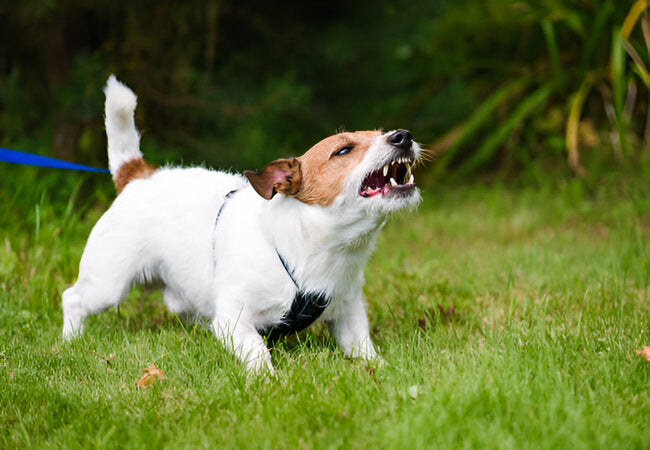7 Dangers of Not Socializing Your Dog in 2025 – Vet‑Approved Insights & Guidance 🐶🚫

In this article
7 Dangers of Not Socializing Your Dog in 2025 – Vet‑Approved Insights & Guidance 🐶🚫
By Dr. Duncan Houston BVSc
Raising a confident, well-adjusted dog starts with socialization—and in 2025, veterinary experts agree that missing this step can create lifelong behavioral challenges. In this comprehensive, vet-approved guide, you’ll discover the top 7 risks of not socializing dogs properly, how to recognize early warning signs, and proactive, positive strategies to protect your pup’s emotional well-being and family harmony. Let's set your dog up for success from the very start! 🌟🐾
1. 😨 Generalized Fearfulness
Without early positive exposure—especially between 8–14 weeks of age—dogs often become fearful of common sights, sounds, or environments, from rustling trash bags to unfamiliar sidewalks. These fears can escalate into avoidance or panic in everyday situations.
Vet tip: provide gradual, positive exposure—short walks, quiet parks, calm introductions with treats.
2. 😤 Anxiety & Reactivity
A lack of social experiences can lead to chronic stress and reactivity. These dogs may bark, lunge, or growl at strangers, cars, or other dogs, mistakenly appearing aggressive but often driven by fear.
Approach: Start counter‑conditioning and desensitization in low‑stress environments, reward calm behavior, and seek professional support if needed.
3. 🏠 Fear of Leaving the House
Without positive outings, dogs can become reluctant—even terrified—to go outside, resulting in limited exercise, quick toilet breaks only in safe zones, and overall avoidance of new places.
Sustainability: Plan gradual outings to various settings—quiet streets, backyards, vet-visited places with treats to form healthy associations.
4. 🐕🦺 Difficulty with Vet Visits & Handling
Under-socialized dogs often panic during veterinary visits, grooming, or car rides, leading owners to skip essential care. Stress can harm health and worsen future fear responses.
Recommendation: Make vet visits positive—treats, gentle exposure, and consider Fear-Free professionals.
5. 🧩 Poor Bite Inhibition & Play Skills
Proper socialization teaches bite control and rough-&-tumble signals. Dogs without these interactive experiences risk playful biting that’s too hard, or missing body-language cues from play partners.
Pro tip: Let supervised puppy playdates happen with vaccinated, friendly pups under positive reinforcement guidance.
6. 💔 Separation Anxiety Risk
Dogs lacking diverse social exposure may form overly dependent attachments, suffering intense distress when alone, leading to destructive behavior or chronic stress.
Preventive steps: Teach independence early—crate time, controlled alone time with cozy toys, gradually lengthening separations.
7. ⚠️ Decreased Quality of Life & Lost Opportunities
Under-socialized dogs often avoid dog parks, playgroups, busy environments, or training classes, limiting their ability to socialize, learn, and experience a full life.
Positive exposure: Enroll in controlled classes, use neutral or slow introductions, apply consistent rewards, and monitor thresholds carefully.
🔑 Veterinary-Approved Solutions
- Start socialization between 3–14 weeks, and continue gradually throughout life.
- Ensure exposures are positive and controlled—vaccinated playmates, calm settings, and treats.
- Build noise tolerance—introduce vacuum, doorbells, traffic sounds in short, reward-based sessions.
- Include safe puppy classes, ongoing adult classes, and vet visits as routine enrichment.
- For older dogs, progress slowly—position below threshold, use food rewards, body signals, and professional help.
📋 Quick Owner Reference Table
| Risk | Signs | Vet-Approved Strategy |
|---|---|---|
| Fearful/Reactive | Barking, lunging, and avoidance | Desensitization, safe exposure, rewards |
| Vet Panic | Freezing, shaking, refusing the carrier | Short vet outings, treats, and Fear‑Free clinics |
| Poor Play Skills | Rough bites, ignoring signals | Supervised puppy social, play etiquette training |
| Separation Issues | Whining, destructive behavior | Practice alone time, independence-building toys |
| Limited Life | Avoiding people, noises, and crowds | Structured outings, positive reinforcement exposure |
📱 Ask A Vet App 2025 Support
- 📹 Send videos of your dog’s reactions or struggles—get personalized feedback.
- 🛠️ Receive tailored socialization plans: threshold-based, rewards, gradual environments.
- 💬 Live coaching: technique refinement, professional collaboration, and progress monitoring.
❤️ Final Thoughts
Socialization isn’t an optional add-on—it’s a foundational component for a healthy, confident canine companion. Without it, fear, anxiety, poor play habits, and limited life experiences can impair well-being. In 2025, with proactive education, vet guidance, and supportive tools like the Ask A Vet app, we can ensure every dog grows into their happiest, bravest self. 🐾✨
Need help with socialization or behavior challenges? Visit AskAVet.com or download the Ask A Vet app to access customized guidance, behaviorist support, and peace-of-mind progress tracking.






